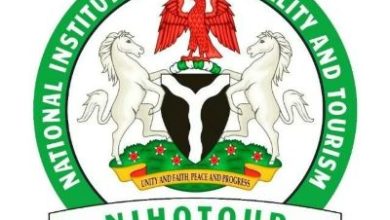Stakeholders seek ways of addressing Aviation infrastructure deficit using private capital

Former President, International Civil Aviation Organization, ICAO, Dr. Bernard Aliu recently harped on the need for African Countries to develop, maintain and modernize their infrastructure to ensure that air traffic growth is managed safely, securely and efficiently.
To achieve this before the pandemic was a herculean task and with the Covid-19, it is even more challenging for African countries including Nigeria to mobilized the financial resources for aviation infrastructure.
How can this challenge be addressed to boost air traffic growth?
Many African countries due to paucity of funds can no longer address the infrastructural deficit in the aviation industry.
To this end, governments of these countries are looking up to the private sector to finance these gaps.
In Nigeria, the private sector participation in the funding and development of infrastructure in the industry has led to many negative outcomes scaring away prospective investors.
Government has spent millions of naira in the acquisition of critical safety infrastructure but with the Covid-19 pandemic, the infrastructure needs have continued to increased and waiting urgently to be meant.
How can government attract private capital to finance infrastructure deficit in the Nigeria aviation sector?
Aviation experts say, the opportunity for private sector investment was huge but the conditions must be right with investment protective laws and enforceable provisions.
“Government has to provide the enabling environment and there must also the enabling institutional, legal and regulatory, you need a robust ethics and transparency disclosure. Inflation, battered Exchange rate, we must make ease of doing business really easy, there is lack of continuity in terms of policies etc”.
They also stressed the need for consistency in government policies to protect investment in aviation infrastructure.
Another expert Mr. Abiola Lawal at the virtual meeting of the Aviation Roundtable Safety Initiative , ART stressed access to low interest rate loans, reduction of business risk for investors, access to multilateral financing and long term tenure for debts up to 10 to 20 years.
“We must be able to access single digit debt not high sine debt, I mean very low single digit debt with 2-5% if we are going to be serious using private capital to finance capital infrastructure in aviation, this has to be long time debt instrument”.
Mr. Rafael Kuuchi Director, Communication Industry and Legal Affairs, African Airlines Association, AFRAA, says the potential benefits of bringing in the private sector to finance the infrastructure deficit include amongst others efficiency and new technology.
“The private sector comes in with management and expertise, efficiency in mind to drive the business much more better than the publics sector, they bring in improvement in the level of service and the private sector are good at innovation and they can bring in a lot to improve, they can develop the full commercial potential”.
With four airports generating 87% of total revenue from 22 airports in Nigeria and a record of about eight million air travellers from over 200 million population, the experts stressed that Nigeria remained a good infrastructure investment destination if existing opportunities were properly harnessed.
Discover more from Radio Nigeria Lagos
Subscribe to get the latest posts to your email.




